A letter from our Executive Director, Katherine Carleton
Dear members,
In the last four weeks a wave of cancellations has spread across the country in the wake of lockdown measures to contain the spread of COVID-19. Every one of our approximately 130 member orchestras has been affected.
It has been nothing short of inspirational to see the adaptability of Canadian orchestras who are now creating more online content than ever. Orchestras Canada has also increased our level of online activity to support our members going through these unprecedented challenges. We know that orchestras are stronger together than they are alone, and we have been expanding and adapting our four mission pillars to help orchestras respond to the current crisis.
Convening
 Over the last month OC has convened online meetings with a number of stakeholder groups to exchange information, ideas and to design collective responses to the current shutdown. We have held meetings with orchestra CEOs, youth orchestra leaders, personnel managers, and with groups of marketing and education staff. We’re making plans to continue and expand these meetings. Let us know what you need.
Over the last month OC has convened online meetings with a number of stakeholder groups to exchange information, ideas and to design collective responses to the current shutdown. We have held meetings with orchestra CEOs, youth orchestra leaders, personnel managers, and with groups of marketing and education staff. We’re making plans to continue and expand these meetings. Let us know what you need.
Advocacy
 Our advocacy committee has been hard at work assessing the best way to approach federal government decision-makers and make them aware of orchestras’ needs. We’ve written a letter to several government ministers, and are encouraging our members to share the letter with their local MPs. For obvious reasons, we’ve focused on emergency short term measures. We’ll continue this, even as we consult with you to develop re-launch and resilience strategies for Canadian orchestras.
Our advocacy committee has been hard at work assessing the best way to approach federal government decision-makers and make them aware of orchestras’ needs. We’ve written a letter to several government ministers, and are encouraging our members to share the letter with their local MPs. For obvious reasons, we’ve focused on emergency short term measures. We’ll continue this, even as we consult with you to develop re-launch and resilience strategies for Canadian orchestras.
Knowledge-sharing
We are issuing frequent updates to our members with news that directly affects the arts sector, as well as resources and tools to equip you to respond to the current situation. We’re also happy to share your initiatives and triumphs. You can read these updates on our COVID-19 page, or by signing up to our email list.
Research
 So far we have run two surveys that have measured the immediate impact of the COVID-19 shutdowns on our members, and have reported back with some initial insights from our statistician, Steve Smith. This data collection is an ongoing process: while we’re aware that you’re being approached we’ll be collecting and analyzing further data.
So far we have run two surveys that have measured the immediate impact of the COVID-19 shutdowns on our members, and have reported back with some initial insights from our statistician, Steve Smith. This data collection is an ongoing process: while we’re aware that you’re being approached we’ll be collecting and analyzing further data.
I encourage you to take a look at what we’ve been up to, and encourage you to get in touch with us to share resources, brainstorm ideas, or just to check in. Take care,
Katherine Carleton C.M.
Executive Director
Orchestras Canada/Orchestres Canada

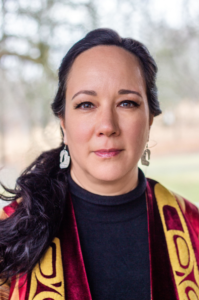
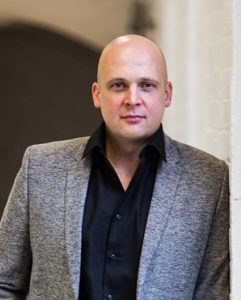
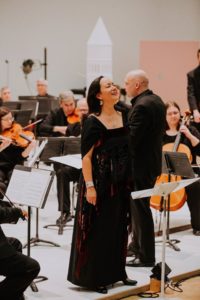 The first project the IAC consulted on was the newly created Forward Currents Festival. “Each year the festival focuses on an issue that is socially relevant to our community here in Regina”, says Gordon. The first edition in 2018 focused on Truth and Reconciliation, and the 2019 edition focused on mental health awareness.
The first project the IAC consulted on was the newly created Forward Currents Festival. “Each year the festival focuses on an issue that is socially relevant to our community here in Regina”, says Gordon. The first edition in 2018 focused on Truth and Reconciliation, and the 2019 edition focused on mental health awareness. As of April 13th, 2020, jobs posted on Orchestras Canada’s job board will require remuneration information. This could take the form of:
As of April 13th, 2020, jobs posted on Orchestras Canada’s job board will require remuneration information. This could take the form of: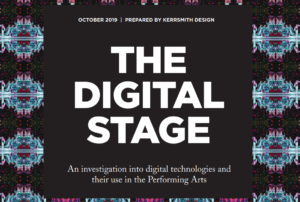
 In recent years, there has been a tremendous increase in recognition of the need for access to the arts and music for the special needs community. Music is part of the human experience and all people have a right to be a part of that. Yet, traditional concert events have barriers that are difficult to overcome: bright lights, loud sounds, high cost, and the expectation of proper concert etiquette and behaviour can make attending orchestral concerts impossible for many with special needs. Arts education opportunities that are truly accessible are also few and far between. Physical accessibility is only part of the equation; true accessibility involves removing all barriers, which requires creative thinking on the part of arts organizations.
In recent years, there has been a tremendous increase in recognition of the need for access to the arts and music for the special needs community. Music is part of the human experience and all people have a right to be a part of that. Yet, traditional concert events have barriers that are difficult to overcome: bright lights, loud sounds, high cost, and the expectation of proper concert etiquette and behaviour can make attending orchestral concerts impossible for many with special needs. Arts education opportunities that are truly accessible are also few and far between. Physical accessibility is only part of the equation; true accessibility involves removing all barriers, which requires creative thinking on the part of arts organizations.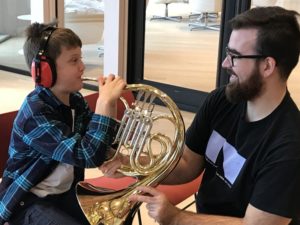 The benefits of taking part in accessible music making and concerts goes beyond just the music (which is a great incentive in itself!). Participating in an accessible adapted music program can facilitate social skill development through encouraging turn taking and engaging with peers. The sensory stimulation provided by making and listening to music in a controlled environment can aid with self-regulation and promote well-being. For parents of children with special needs, the opportunity to engage with the arts in a way that is comfortable for their child is priceless.
The benefits of taking part in accessible music making and concerts goes beyond just the music (which is a great incentive in itself!). Participating in an accessible adapted music program can facilitate social skill development through encouraging turn taking and engaging with peers. The sensory stimulation provided by making and listening to music in a controlled environment can aid with self-regulation and promote well-being. For parents of children with special needs, the opportunity to engage with the arts in a way that is comfortable for their child is priceless.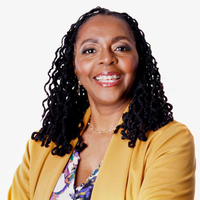 As part of OC’s
As part of OC’s 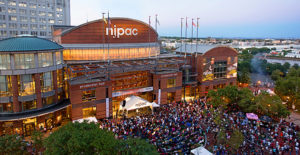 How has this work changed over time? “It’s an evolution. I’ve been involved in this work since 1982,” Donna says. “At that time we didn’t have any terminology for the lack of diversity in audiences, but there was a conversation.” It took a while for organizations to move on what they heard. In the 1990s, people started using the term audience development, and some foundations started putting funds towards this. Over time, audience development became to be seen as a term more concerned with sales, i.e. developing an audience to purchase tickets. The term community engagement represented the next step. “First we have to cultivate the community to be interested in what we’re doing,” Donna says.
How has this work changed over time? “It’s an evolution. I’ve been involved in this work since 1982,” Donna says. “At that time we didn’t have any terminology for the lack of diversity in audiences, but there was a conversation.” It took a while for organizations to move on what they heard. In the 1990s, people started using the term audience development, and some foundations started putting funds towards this. Over time, audience development became to be seen as a term more concerned with sales, i.e. developing an audience to purchase tickets. The term community engagement represented the next step. “First we have to cultivate the community to be interested in what we’re doing,” Donna says.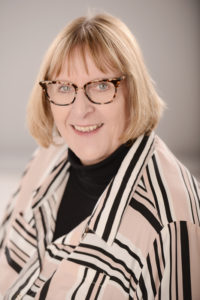 The word Digital invokes a wide spectrum of reactions from arts administrators, from screams of delight to… just screams. Whether capital ‘D’ digital is something that is embedded into your organization’s DNA, or just something that you think the staff millennial does, orchestras are engaging with their audiences on digital platforms in ways that are new, exciting, and scary. In preparation for our
The word Digital invokes a wide spectrum of reactions from arts administrators, from screams of delight to… just screams. Whether capital ‘D’ digital is something that is embedded into your organization’s DNA, or just something that you think the staff millennial does, orchestras are engaging with their audiences on digital platforms in ways that are new, exciting, and scary. In preparation for our  Although conversations about integrating digital technologies into our arts organizations are nothing new, the way we speak about it needs to change. “The term Digital is one of those zeitgeist-y terms,” Fiona says. “It’s a disastrous term that makes people feel inadequate. It’s okay not to know what that word means, because it doesn’t really mean anything.” We tend to use the term as a catch-all for being active online, but don’t always know what this looks like. Orchestras want to be digitally active, but it’s not as simple as just livestreaming everything we do. We need to strategically choose what we present online in order to get the most impact from our limited time and money.
Although conversations about integrating digital technologies into our arts organizations are nothing new, the way we speak about it needs to change. “The term Digital is one of those zeitgeist-y terms,” Fiona says. “It’s a disastrous term that makes people feel inadequate. It’s okay not to know what that word means, because it doesn’t really mean anything.” We tend to use the term as a catch-all for being active online, but don’t always know what this looks like. Orchestras want to be digitally active, but it’s not as simple as just livestreaming everything we do. We need to strategically choose what we present online in order to get the most impact from our limited time and money.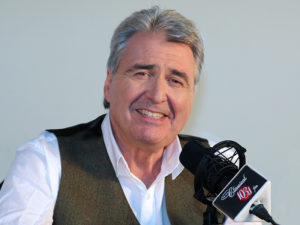 Maestro Kerry Stratton is our friend and a friend to classical music lovers across the nation, and internationally due to his incredible career. He is a household name in Toronto; in addition to being an extraordinary conductor, Kerry has been a broadcaster for three decades at the New Classical FM. For the last five years, Maestro Kerry has energetically lead the Symphony in the Gardens at Casa Loma every Tuesday night of the spring, summer, and early fall, playing to an audience of thousands each week, many of whom had never experienced the wonder of an orchestral performance. Kerry’s conducting is magnetic, energetic, fun, impassioned, and vigorous…the perfect foil to lure in unsuspecting and budding classical music lovers and they return, in droves.
Maestro Kerry Stratton is our friend and a friend to classical music lovers across the nation, and internationally due to his incredible career. He is a household name in Toronto; in addition to being an extraordinary conductor, Kerry has been a broadcaster for three decades at the New Classical FM. For the last five years, Maestro Kerry has energetically lead the Symphony in the Gardens at Casa Loma every Tuesday night of the spring, summer, and early fall, playing to an audience of thousands each week, many of whom had never experienced the wonder of an orchestral performance. Kerry’s conducting is magnetic, energetic, fun, impassioned, and vigorous…the perfect foil to lure in unsuspecting and budding classical music lovers and they return, in droves. 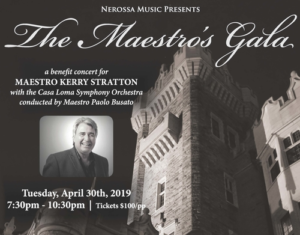 The real magic in Kerry lies in his witty, wickedly, knowledgeable mind, which ALS cannot affect. And so in his third iteration, Maestro Kerry, Artistic Director, will continue to program beautiful entertainment for as long as he is able.
The real magic in Kerry lies in his witty, wickedly, knowledgeable mind, which ALS cannot affect. And so in his third iteration, Maestro Kerry, Artistic Director, will continue to program beautiful entertainment for as long as he is able.